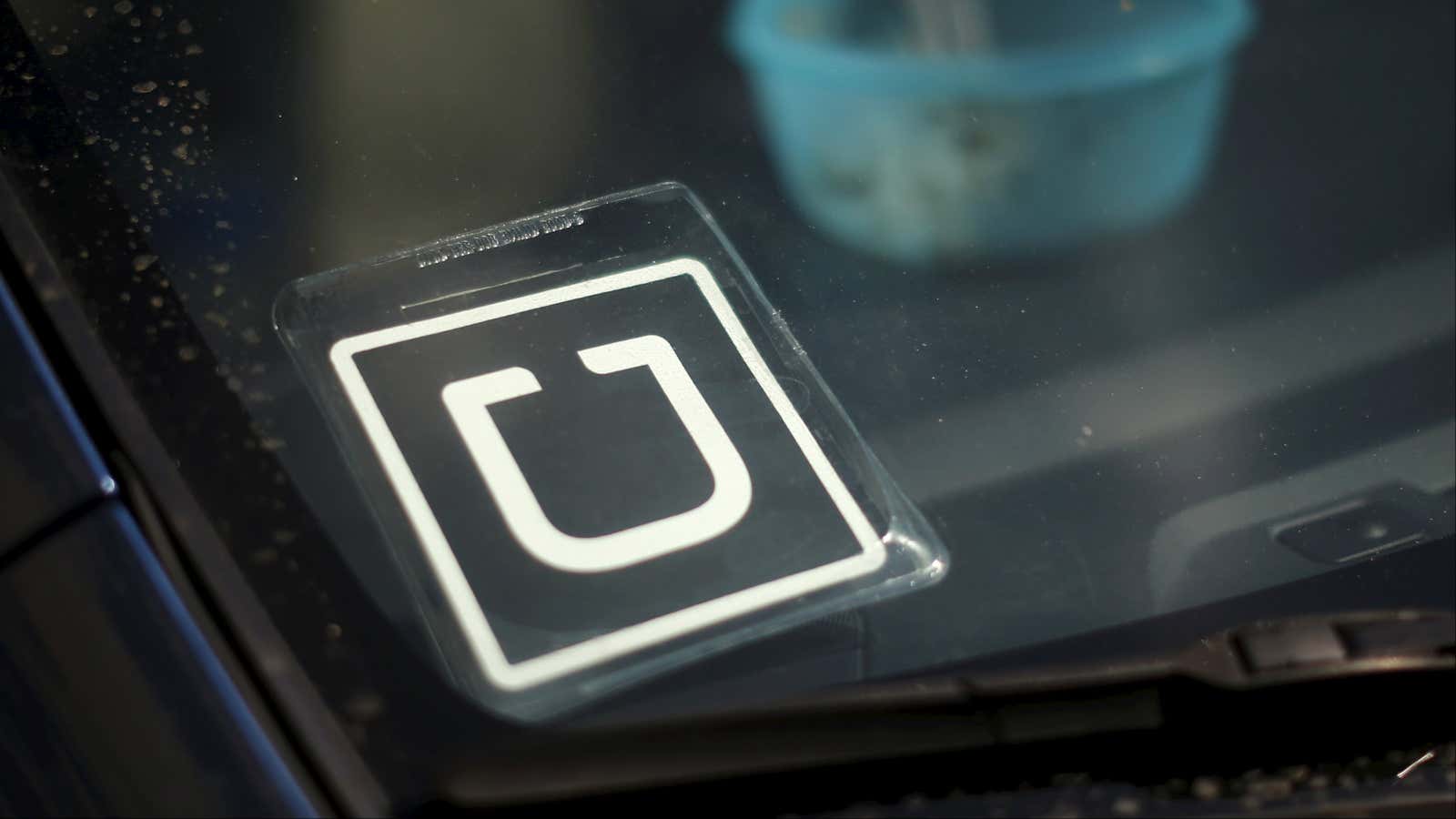Hailing an Uber in Abuja, Nigeria’s capital city, will be a tough task today (Monday).
Partners signed up to Uber in Abuja, where the company launched in March, have announced a strike action to protest what they describe as shabby treatment by the ride hailing company. Among partners’ concerns are low fare prices and driver security amid reports of robberies by riders. In many other cities, protests against Uber are led by drivers who own cars registered with the company. But in Nigeria, given low access to credit, many drivers are employees of partners who own the cars.
While a strike action might seem drastic, partners say Uber has not replied to several requests for meetings to discuss and resolve their issues.
For its part, Uber says the striking partners are a small group whose sentiments don’t reflect those of many other partners. With thousands of partners, “it would be difficult to see how one person or group could represent all their interests,” an Uber spokesperson told Quartz in an email.
Regardless, the complaining partners appear to have significantly planned their actions. ”The economic changes we are experiencing has made some trips quite unprofitable, if not impracticable,” the partners said in an email to Uber, according to reports. “The evident nonchalant attitude to our request is seen as further worsening an already difficult business situation for partners. It re-emphasizes the perception that this is not a partnership.”
As part of the strike, partners have decided to “trim off” trips deemed unprofitable, including rides to and from the capital city’s international airport. The result: a sharp spike in surge pricing across Abuja.
Using the hashtag #UberAbujaStrike, partners have taken to Twitter to complain about poor treatment from Uber.
The partners’ claims of a lack of profits is linked to the difference in Uber’s pricing in Abuja and Lagos, where it has operated for more than two years. With Uber charging almost half of its Lagos fares in Abuja, one of the goals of the strike action is to force Uber to drive up its prices.
Uber’s operations in Lagos haven’t been without bumps either. As Quartz reported last month, the state government’s rules on taxi regulation, including registering taxi operators under a franchise license, may disrupt its services.
